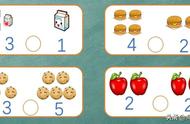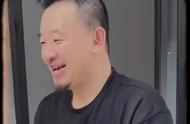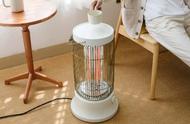1、主语(S: Subject)
是一个句子所论述的主体,在主动语态下是谓语动作或状态的施行者;在被动语态下是动作的对象或承受者。
一般位于句首、谓语动词之前;但在存现句、主语不是特殊疑问词的疑问句和倒装句中,主语要放在谓语动词、助动词和情态动词之后。
能作主语的词汇(短语)有:名词(短语)、代词、数词、名词化的形容词、动词不定式短语(to V sth.或特殊疑问词 to V sth.)、动名词(短语)和从句等。
1)名词作主语
Pride goes before a fall.骄必败。
2)代词作主语
All of the students are interested in it.所有的学生对此都很感兴趣。
3)数词作主语
Twenty years is a short time in history.二十年在历史上只是很短的一段时间。
Two-thirds of the students are boys in our school.我们学校三分之二的学生是男生。
4)名词化形容词作主语
The poor get poorer; the rich get richer.穷者愈穷;富者愈富。
5)不定式作主语
To hesitate means failure.犹豫不决就意味着失败。
6)动名词作主语
Watching a film is his hobby.看电影是他的爱好。
7)从句作主语
What we shall do next is not yet decided.下一步做什么还没有决定。
Whether they would support us was a problem.他们是否会支持我们还是一个问题。
【针对训练】
My name is Gina. 我是吉娜。
Mary is a good student. 玛丽是一个好学生。
Professor Zhang is a famous scientist.张教授是著名的科学家。
There are many students in the classroom. 教室里有很多学生。
There is a book and two pencils on the table.桌子上有一本书和两支铅笔。
Are you Helen?你是海伦吗?
No one can answer this question.没有人能回答这个问题。
We often speak English in class.我们经常在课堂上说英语。
No one can answer this question. 没人能回答这个问题。
Nothing is too difficult if you put your heart into it.世上无难事,只怕有心人。
She’s my sister. Oh,and these are my brothers.
Two times five is ten.2乘5等于10.
One third of the students in this class are girls.这个班1/3的学生是女生。
The rich should help the poor. 富人应该帮助穷人。(?作主语)
The old are well taken care of in our country.在我国,老人受到了很好的照顾。
Swimming is good for you.游泳对你有好处。
Smoking does harm to our health. 抽烟对健康有害。
Have a good day at school!祝你在学校里开心快乐!
Don’t run in the hallways. 不要再走廊里乱跑.
You can watch TV after you read a book. 在读完书后,你可以看电视。
Four plus six is ten. 4加6等于10。
Hundreds came to the exhibition. 有几百人来参观展览会。
Two-thirds of the workers of this factory are men. 这个工厂三分之二的工人都是男性。
Three will be enough for us. 三个对我们来说足够了。
The young should respect the old. 青年人应该尊重老年人。
To drink a cup of cold drink in such hot weather is a great pleasure. 这么热的天喝一杯冷饮是一件非常愉快的事情。
It is necessary to learn a foreign language well. 学好一门外语很有必要。
Traveling abroad is popular these years. 近年来出国旅游很是流行。
The wounded have been sent to the hospital. 受伤的人已经被送往医院了。
When we shall go back has not been decided yet. 我们什么时候返回还没有决定。
What she did is for your good. 她所做的是为了你好。
Whenever you come will be fine.你无论何时来都可以。
2、谓语(V: Verb)
1.定义
用来说明主语所做的动作或具有的特征或状态,表明主语是什么、作什么或处于什么状态。
(1)只能由行为动词或系动词(短语)充当。
(2)有①人称、②主谓一致、③时态、④语态、⑤语气和⑥搭配的变化。
2.位置
通常放在主语之后。
3.规则
(1)简单谓语:由一个动词或动词短语构成的谓语。
Hi!My name is Gina. 你好!我是吉娜。(is系系动词作简单谓语)
Mary received her physics degree in 2003.玛丽在2003年获得物理学位。(received系行为动词中的及物动词作简单谓语)
Tom died.汤姆去世了。(died系行为动词中的不及物动词作简单谓语)
Have a good day at school!祝你在学校里开心快乐! (祈使句,have作简单谓语)
He got rid of the enimies. 他摆脱了敌人。(got rid of系动词短语作简单谓语)
(2)复合谓语:由A情态动词/助动词 动词原形、B系动词 表语或C情态动词 助动词 过去分词构成的谓语。
You can watch TV after you read a book. (此句为主从复合句,can watch在主句中作复合谓语;read在时间状语从句中充当简单谓语)
You may keep the book for two weeks. 这本书你可以借两周。(may keep系情态动词 行为动词原形作复合谓语)
He has caught a bad cold.他患了重感冒。(has caught系助动词 行为动词的过去分词作复合谓语)
She’s exercising now. (is exercising系助动词be 行为动词ing形式exercising为复合谓语)
We are students. 我们是学生。(are students系系动词are 表语students共同作谓语)
What are you doing ? (助动词are和行为动词ing形式doing构成复合谓语)
4.动词
(1)行为动词
①及物动词;I bought a pen yesterday.
②不及物动词。He listens to the music every day.
(2)系动词
①状态动词(be动词),表主语状态。
He is a teacher.
②持续动词(keep, remain, stay, lie, stand等),表主语继续或保持一种状况或态度。
The food stays fresh in the fridge.
③“像”动词(seem,appear,look),表“看起来像”。
Something seems wrong.
④感官动词(look“看起来”,feel“摸起来”,smell“闻起来”,sound“听起来”,taste“尝起来”)。
This kind of cloth feels very soft.
⑤渐变动词(become, grow, turn, fall, get, go, come, run),表主语变成什么样。
go作系动词其后跟表语常常是不好的变化的形容词。
He became mad after that.
⑥终止动词(prove,turn out),表主语已终止动作,有证实,变成之意。
The rumor proved false.
(3)助动词
do, be, have
1)不能单独作谓语;本身无意义;和行为动词一起构成复合谓语。
2)分类:
①帮助构成时态的:
The boy is crying.(is 用来帮助构成现在进行时,和crying 一起作谓语,是助动词。 )
②帮助构成否定句和疑问句的:
Does he like English? (does 帮助构成一般疑问句,无具体意义,是助动词。 )
③帮助构成被动语态的:
Trees are planted in spring. (are 帮助构成被动语态,无具体意义,是助动词。 )
④帮助构成虚拟语气的:
If he had come yesterday, I wouldn ’have made such a mistake.(had, have 帮助构成虚拟语气,是助动词,属复合谓语的一部分。 )
⑤帮助构成倒装句的:
So did he love his mother that he bought her many presents on her birthday.
(did 只是帮助构成倒装句,无具体意义,是助动词。 )
⑥帮助构成强调意义的:
He did come yesterday. (did 起强调作用,无具体意义,是助动词。)
(4)情态动词
不能单独作谓语;本身有意义。
和行为动词一起构成复合谓语。
You must stay at home.
(5)非谓语动词
在英语中,一套主谓结构中只能有一个谓语,再出现表动作的动词时,要把该动词变成非谓语形式:①动词不定式; ②动名词; ③分词。
(6)考点
1)动词是Vi还是Vt,需要从放到句子中考量。
The door opened.
He opened the door.
①有些动词既可作及物动词又可作不及物动词,词义相同。
The meeting began at six.
We began the meeting at six.
②有些动词既可作及物动词又可作不及物动词,词义不同。
The man walked away.
He walked the dog every day.(walk是及物动词,“遛”。)
③英语中一些动词是及物动词还是不及物动词,可能与汉语不同。
He listens to the music every day (listen 为不及物动词,而汉语中“听”是及物动词。)
④有些动词只能作及物动词,就必须带宾语
I don't know what to do. (正确,what是连接代词,既连接谓语和宾语,又作do的宾语,有含义)
I don't know why/how/when to do.(错误,需要在do后加it)
2) think, insist, agree, reply等词后面可直接跟宾语从句;但跟名词、代词等作宾语时,是不及物动词,要跟介词。
I think it's interesting. 我认为这很有趣。
What do you think of the film?你觉得这部电影怎样?
I replied that I was unable to help them.我回答说我帮不了他们
He has not yet replied to my question.他还没有回答我的问题。
He insisted that I (should) apologize to her.他坚持我应该向她道歉。
He insisted on paying for the meal.他坚持要付饭钱
He insisted on immediate payment.他坚持要求对方立即付款。
5、关系
(1)主被动
The boy crying over there is Tom.
The house built last year is the strongest.
(2)逻辑上的主谓
He asked me to lend him some money.
【针对训练】
Are you Helen?你是海伦吗?
Mary received her physics degree in 2003.玛丽在2003年获得物理学位。
Tom worked for the company for two years. 汤姆为这家公司工作了两年。
He got rid of his bad habit.他已经改掉了他的坏习惯。
She takes good care of her mother.她细心照料她的母亲。
Have a good day at school!祝你在学校里开心快乐!
You can watch TV after you read a book.
You may keep the book for two weeks. 这本书你可以借两周。
He has caught a bad cold.他患了重感冒。
She’s exercising now.
He ’s living with an American family in New York.
We are students. 我们是学生。
His words sound reasonable. 他的话听起来有道理。
3、宾语
动作的对象或承受者。
行为动词(不及物动词 介词=及物动词)或介词的后面;某些不及物动词可直接跟其同源宾语。
一般在谓语动词之后。
分类:凡能作主语的词汇、词组或从句均可作宾语。
1)及物动词宾语
He wrote many plays. 他写了许多剧本。(名词作宾语)
We often help him. 我们经常帮助他。(代词作宾语)
-How many birds did you catch?--你抓住几只鸟?
-I caught three.--我抓了三只。(数词作宾语)
He likes to play basketball.他喜欢打篮球。(不定式作宾语)
We enjoy listening to the music.我们很喜欢听这首音乐。(动名词短语作宾语)
She said that she felt sick.她说她病了。(从句做宾语)
2)介词宾语
(1)名词作介词宾语
The town is beside the sea. 城镇坐落在海边。
Are you interested in history?你对历史感兴趣吗?
(2)代词作介词宾语
He got there before me.他比我先到那儿。
No one can sing like her. 没有人能像她那样唱歌。
【提示】 人称代词用作宾语只能用宾格。
(3)动名词作介词宾语
He is good at telling stories.他善于讲故事。
He went out without being seen by the others.他出去了,没有被其他人看见。
(4)“疑问词 to do”作介词宾语
Bill said something to her about what to do.比尔给她讲了讲应当怎样做。
He gave me some advice on how to do it.对于如何做这事他给我提了些建议。
(5)数词作介词宾语
The city has a population of four million.这座城有四百万人口。
(6)从句作介词宾语
He was not satisfied with what she said.他对她说的不满意。
I'm worried about where he is. 我担心他上哪儿去了。
3)直接宾语和间接宾语
She showed me her pictures.她把她的照片拿给我看。
间宾 直宾
The sun gives us light and warmth.太阳给了我们光和热。
间宾 直宾
We chose her a Christmas present.我们为她挑选了一件圣诞礼物。
间宾 直宾
Jim bought me a beautiful present.吉姆给我买了个漂亮的礼物。
间宾 直宾
【提示】
直接宾语表示动作的承受者或结果,一般指物,常由名词、代词、数词、不定式等来充当;间接宾语表示动作是对谁做或为谁做的,一般指人,常由名词或代词来充当。
间接宾语通常放在直接宾语之前;有时为了强调间接宾语,可用直接宾语 to/for 间接宾语结构。
如直接宾语是人称代词,必须把间接宾语后置,并在前面加to。
能带双宾语的动词有:
A、多用动词 直接宾语 to 间接宾语的有:allow允许,bring带来,buy购买,do做/实行,deny拒绝,fetch取来,find发现,get获得, give给予,grant准许/承认,hand交给,leave留下, lend借给,make制造/安排,offer提供,order命令, owe归功于,paint画/描绘,pass传递,pay支付, play扮演,post邮寄, promise答应, read读, refuse拒绝, return归还,save保存,send寄送, show展示, sing唱,tell告诉, throw投/掷, teach教育, write写, wish希望等。
Please pass me the book. 请把那本书递给我。
B、多用动词 直接宾语 for 间接宾语的有:build, pick, order, make, save保存/节约/拯救, choose, buy, fetch接/取来, get, find, reserve储备/保留/预约, do, paint, play, spare节约, sing,book订购等。
Mother bought me a cap yesterday.母亲昨天给我买了一顶帽子。
=Mother bought a cap for me yesterday.
Please tell me how the accident came about.请告诉我事故是怎么发生的。
C、有时也可适用于动词 直接宾语 to/for 间接宾语 句式的动词有take、get、sing、play等。
Can I take a message for him? 我能带话给他吗?(七下P38)
=Can I take him a message?
I’ll get some water for/to you. 我给你弄些水来。
She played some folk songs for/to us. 她为我们演奏了一些民歌。
D、个别间接宾语放在直接宾语之后,间接宾语要加of、on或with。
I’d like to ask you a favor.我想请你帮个忙。=I’d like to ask a favor of you.
May I ask you a question? 我问你一个问题好吗? =May I ask a question of you?
4)同源宾语
cough a ... cough 咳嗽 dance a ... dance 跳了一段……舞蹈
die a ... death 牺牲 dream a ... dream 做了个……梦
fight a... fight 进行……斗争 laugh a...laugh 大笑
live a ... life 过……的生活 sigh a ... sigh 叹气
sleep a ... sleep 睡了个……觉 smile a ... smile 微笑
She sleeps a sweet sleep only on Sundays.只有在周日她才能甜美地睡一觉。
I was dreaming a terrible dream. 我正在做噩梦。
5)it 作形式宾语
当较长的不定式或that从句作动词宾语时,常用形式宾语it来替代,而将真正的宾语后置。
①代替不定式
I think/find/feel/consider/make/believe... it 形容词/名词 to do sth.
I find it pleasant to work with him.我觉得和他一起工作很愉快。
They felt it difficult to finish the work in such a short time.他们认为在这么短的时间内完成这项工作是困难的。
She thinks it her duty to help us.她觉得帮助我们是她的责任。
②代替动名词
I think/find/feel/consider/make/believe.. it 形容词/名词 Ving. Sth.
We think it no use complaining我们认为抱怨是没有用的。
He found it useless/no use arguing with him.他发现和他辩论没有用。
③代替宾语从句
I think/find/feel/consider/make/believe.. it 形容词/名词 that
I think it best that you should stay here我认为你最好住这儿。
④代替that,if,when等引导的从句
I like/enjoy/love/hate/take/have/put... it that
【针对训练】
I can hardly hear the radio. 我几乎听不到收音机的广播。
You can watch TV after you read a book.
She’s exercising now.
We should learn from her. 我们应该向她学习。
I’ll call him after school. 放学后我会打电话给他。
They helped the old with their housework yesterday. 她们昨天帮助老年人做家务了。
He ’s living with an American family in New York.
If you put five and seven together, you will get twelve. 如果把5和7相加,你就会得到12。
We should help the poor. 我们应当帮助穷人。
The matter needs thinking over. 这件事需要考虑。
Please stop making noise. 请别吵闹啦。
The stretcher team carried the seriously wounded. 担架队抬重伤员。
He promised to help me.他曾经答应来帮助我。
Remember to tell him to come. 记着告诉他让他来。
He pretended not to see me. 他装作没看见我。
Do Please pass me the book. 请把那本书递给我。
She teaches us English. 她教我们英语。
I wish you success.我祝你成功。
The mother is reading a story to her young children. 母亲正在给她的小宝宝读故事(听)。
=The mother is reading her young children a story.
He gave her some apples. = He gave some apples to her. 他给了她一些苹果。
Do you understand what I mean? 你明白我的意思吗?
May I ask you a question? 我问你一个问题好吗?
I’d like to ask you a favor.我想请你帮个忙。
They lived a happy life.他们过着幸福的生活。
4、宾语补足语
部分及物动词带了宾语以后,还需要有补足成分,用来说明宾语或主语的性质、特征、状态、身份等的,才能使句意完整。
这一补充成分在主动语态句中称为宾语补足语(Oc:Object Complement);在被动语态中补充说明主语的就是主语补足语。
补足语主要由名词、形容词、副词、不定式、Ving、过去分词、介词短语、从句等充当。
1)名词作宾补
The war made him a soldier.战争使他成为一名战士.
They appointed him chairman of the committee.他们任命他为委员会主席。
【提示】表示唯一的职务头衔的名词作宾补时,用零冠词。
2)形容词作宾补
New methods make the job easy.新方法使这项工作变得轻松。
3)副词作宾补
He found his teacher out when he called on him.他去拜访他的老师时,发现老师不在家。
4)介词短语作宾补
I often find him at work. 我经常发现他在工作。
5)动词不定式作宾补
We found her in tears.我们发现她在哭泣。
6)(不带to)动词不定式作宾补
Will you have Mary call me back?你能让玛丽给我回电话吗?
7)现在分词作宾补
I saw a cat running across the road.我看见一只猫跑过了马路。
8)过去分词作宾补
I will have all my clothes washed this afternoon.今天下午我将把所有衣服都拿去洗。
【提示】
1)动词 宾语 名词/形容词/副词作宾语补足语的动词有:call叫/称为, cause引起,consider认为,
choose选择,allow同意, elect选举, keep保持, make使变为,name命名, judge判断,see看见,
find发现, name起名, hear听到, smell闻到, have让, let让, get使, drive使得,paint漆,leave留下,set使,think认为,dye染,help, prefer, notice注意,watch观看,declare宣布, wish祝愿, advise, feel。
His father named him Saul.他父亲给他取名索罗。
We consider it a great success. 我们认为这是一个极大的成功。
They painted their boat white. 他们把船漆成白色。
I saw him young and strong,and now he is old and worn. 我以前见他的时候,他年轻力壮,而现在他已年老体弱。
Let the fresh air in. 让新鲜空气进来。
2)see、have、let、make、hear、watch、notice、observe(观察到)等动词 宾语加不定式作宾语补足语时,必须去不定式符号to;当这些动词用于被动语态时,必须把去的to还原。
help之后的不定式作宾语补足语时,可带可不带to。
3)动词 宾语 (to be) 名词或形容词作宾语补足语的动词有:suppose猜测、believe认为、declare宣布、imagine想象、feel感觉、find发觉、know知道、prove证明、understand理解等,本结构中的to be也可略。
Nobody noticed him enter the room.没有人注意到他进了屋。
=He was noticed to enter the room.
Karl Marx found it important to study English very well. 卡尔马克思发现学好英语是非常重要的。
Shall I make you a cup of coffee?我为你冲杯咖啡好吗?
I believe him to be innocent. 我认为他是无辜的。
We know him to be a good worker. 我们知道他做起事来是是一把好手。
4)动词 宾语 过去分词作宾语补足的动词有:hear听见、watch注意看、have使、make使、think认为、see看见、get使、find发现等。
Jim has got his bike repaired. 吉姆把自行车修好了。
She found the door painted. 她发现门被漆过了。
Tom had his left foot injured in the fall. 汤姆左脚摔伤了。
5)动词 宾语 现在分词作宾语补足语的动词有:watch注意看/观看、see看见、hear听见、catch抓住、smell闻到、observe观察、keep使、get使、have让、find发现等。
She heard a bird singing merrily in the tree. 她听见一只鸟正在树上欢快地鸣叫。
Mr. Lin found a student dozing off.林老师发现一个学生在打瞌睡。
6)动词 宾语 【as/for 名词】短语作宾语补足语的动词有:consider认为、regard看作、use用作、choose选为等。
They considered him as the best scholar in the field. 他们认为她是这个领域里最优秀的学者。
He regarded the experiment as a failure.他认为这项实验是失败的。
7)动词 宾语 介词短语或副词作宾语补足语。
He kept the car in good condition.他的车子保养良好。
Please make yourself at home.请别客气。
John drove us home. 约翰开车送我们回家。
8)动词 宾语 不定式作宾语补足语的动词有:allow、remind、expect、tell、order、ask、beg、command、request、teach、invite、drive、intend、mean、cause、want、permit、advise、persuade、encourage、recommend、would love、would like等。
He encouraged her to do the work well.我鼓励她把工作做好。
I’d like to go with her. 我想让你同她一起去。
9)动词 宾语 [疑问代词或疑问副词 不定式]作宾语补足语。
除why不可使用这种结构外,what、which、how、where、when均可使用于此结构。
适用于此句式的动词有:forget、remember、ask、wonder、decide、learn、think、know、explain、understand、discuss、discover、find out、want to know、have no idea、make up one’s mind、be not sure等。
what、which、whose、how much、how many后可加名词,再加不定式作宾语补足语。
I don’t know what to do next. 我不知道下面该做什么了。
I forgot to spell the word. 我忘记了怎么拼写这个词。
They discussed how much money to take. 他们讨论要带多少钱。
I want to know which dictionary to buy. 我想知道要买哪一本词典。
10)有些及物动词后加of(表间接性动作),也可加宾语 宾语补足语,这些动词有hear听见--hear of听说,read读--read of读到, speak说--speak of说到。
I heard him singing in the room. 我听见他在房间里唱歌。
I heard of him , but I don’t know him. 我听说过他,但不认识他。
11)当含有宾语补足语的句子变为被动语态时,宾语补足语便成了主语补足语。
The teacher made the children get up early . 老师要孩子们早点起。 (动词不定式作宾语补足语)
The children were made to get up early by teacher. 孩子们被老师要求早点起。 (动词不定式作主语补足语)
【针对训练】
His father named him Saul.他父亲给他取名索罗。
We consider it a great success. 我们认为这是一个极大的成功。
They painted their boat white. 他们把船漆成白色。
I saw him young and strong,and now he is old and worn. 我以前见他的时候,他年轻力壮,而现在他已年老体弱。
Let the fresh air in. 让新鲜空气进来。
Nobody noticed him enter the room.没有人注意到他进了屋。
=He was noticed to enter the room.
Karl Marx found it important to study English very well. 卡尔马克思发现学好英语是非常重要的。
Shall I make you a cup of coffee?我为你冲杯咖啡好吗?
The teacher made the children get up early . 老师要孩子们早点起。
He found her in trouble. 他发现她遇到了麻烦。
5、表语
放在连系动词之后,用来说明主语的特征、状态、类属及身份等的句子成分。
连系动词有:(1)系动词be及各种变化形式。(2)渐变动词get、become、grow、turn等。(3)感官动词look、smell、taste、fell等。(4)不规则动词seem、appear等。
表语主要由名词、代词、数词、形容词、不定式、动词-ing形式、过去分词、副词、介词短语、从句等充当。
动词不定式和动名词作表语,相当于一个名词作表语,含义是回答主语“是什么”;分词作表语相当于形容词作表语,含义是回答主语“怎么样”。
1)名词作表语
Africa is a big continent.非洲是个大洲。
2)代词作表语
This watch is mine.这块表是我的。
Money isn't everything.金钱不是一切。
3)形容词作表语
I feel much better today.我今天感觉好多了。
It gets cold. 天气变冷了。
4)不定式作表语
All I could do was to wait.我能做的只是等待。
5)分词作表语
He remained standing beside the table.他依然站在桌旁。
she looked tired with cooking. 她由于忙着做饭,看上去有些疲倦。
6)动名词作表语
His hobby is collecting stamps.他的爱好就是集邮。
7)介词短语作表语
The patient is out of danger. 病人脱险了。
8)副词作表语
The sun is up. 太阳升起来了。
9)从句作表语
This is what he said. 这就是他所说的话。
【提示】
作表语的过去分词有:gone走了/去了, lost失去了/迷路, satisfied满意的, interested感兴趣的, bored厌烦的, broken破碎的, worried担心的, excited兴奋的, tired疲劳的, pleased高兴的, touched感动的, done做完的, known为人所知的, puzzled困惑不解的, confused迷惑的, astonished吃惊的, disappointed失望的, surprised吃惊的, discouraged泄气的。
【针对训练】
She is our teacher. 她是我们的老师。
My teacher of English is an American. 我的英语老师是美国人。
The pencil is hers. 这支铅笔是她的。
He’s sixteen. 他16岁了。
Three times seven is twenty-one.3乘7等于21.
She’s always the first to come.她总是第一个到。
I’m free on Sunday.我周日有时间。
It has turned cold.天气变冷了。
The class is over.下课。
He is there. 他在那里。
Her work is to look after the children. 她的工作是照看孩子们。
My dream is to fly to the moon. 我的梦想是飞向月球。
The problem is how to get enough money. 问题是怎么样得到足够多的钱。
The difficulty is how to cross the river. 困难是怎么渡河。
What she likes is growing flowers. 她的喜好是养花。
It is surprising to hear the news. 听到这个消息令人吃惊。
He seemed worried about it. 他似乎为那件事在担心。
She is at home in English. 她精通英语。(介词短语作表语)
My keys are in the bookcase.我的钥匙在书橱里。
That is what I think. 那就是我所想的。
The problem is who can drive you home. 问题是谁能开车送你回家。
My hobby is collecting stamps.我的爱好是集邮。
6、定语
用来修饰名词或代词、用来说明名词或代词的品质与特征的句子成分。
分类:
(1)前置定语:用形容词、代词、数词、名词、名词所有格、副词、动名词作定语时,通常放在被修饰词的前面。
(2)后置定语:用介词短语、不定式、分词短语、句子作定语时,通常放在被修饰词的后面。
I have many letters to write. 我有许多信要写。
1)形容词作定语
He was advised to teach the lazy boy a lesson.有人建议他教训一下那个懒惰的孩子 The little boy needs a blue pen.小男孩需要一支蓝色的钢笔。
2)数词作定语
Two boys need two pens. 两个男孩需要两支钢笔。 We belong to the third world. 我们属于第三世界。
3)形容词性物主代词作定语
I broke my leg when I was playing football. 我在踢足球时把腿摔断了。 Take a note of their names and addresses. 把他们的姓名和地址记下来。
4)名词所有格作定语
His boy needs Tom's book. 他家男孩需要 Tom 的书。 The boss's son was rude to all the employees.老板的儿子对所有雇佣人员都很无礼。
The boy in the classroom needs a tabie.教室里的男孩需要一张桌子。
5)介词短语作定语
The boy in blue is Tom.穿蓝色衣服的男孩是汤姆。 The boy needs a ball pen.这男孩需要一支圆珠笔。
6)名词作定语
All difficulties are also paper tigers.一切困难也都是纸老虎。
The boy to write this letter needs a pen.写这封信的男孩需要一支钢笔。
7)不定式作定语
We have made a plan to learn from Lei Feng.我们制定了一个向雷锋学习的计划。
I have no time to go there. 我没有时间去那儿。
8)分词作定语
The smiling boy needs a school bag bought by his mother.那个微笑的男孩需要一只他妈妈买的书包。
The bridge built last month needs repairing. 上个月建造的那座桥需要修理。
9)从句作定语
The boy who is reading needs a pair of glasses. 那个在阅读的男孩需要一副眼镜。
The man who gave us a report yesterday was a model worker.昨天晚上给我们作报告的那个人是劳动模范。
【提示】
被前置定语修饰由some、any、every、no等构成的复合性不定代词如somebody、anything、everyone、nothing等时,定语必须放在该类词的后面。
else(副词,其他的/另外的)作定语位于复合不定代词someone、somebody、no one、nobody、nothing、something、anything等之后或wh-之后。
定语的顺序方式:通常情况下:“限定描绘大长高,形状年龄和新老,颜色国籍出材料, 作用类别往后靠”
①指示词(these/those/this/that) ②限定(the/our/their/my/your) ③序数(first/second/last) 基数词(one/two/three) ④性质、状态(heavy/nice/pretty) ⑤大小、长短(large/small/short) ⑥形状、新旧(round/new/old) ⑦色彩(white/yellow/black) ⑧国籍(American/Swiss) ⑨材料(metal/woolen/wooden)。如a piece of old black Chinese furniture一件古旧的中国家具。
单个的词作定语时常常放在它所修饰的词之前,短语或从句作定语时则放在所修饰的词之后。
【针对训练】
Taiyuan is a beautiful city.桂林是一座美丽的城。
A bright future shines before my eyes. 光明的未来展现在我的眼前。
There is something wrong with the radio. 收音机有毛病了。
They are talking about a maths problem. 他们在讨论一个数学问题。
There are thirty women teachers in our school.我们学校有30名女教师。
Can anyone answer this question? 有人能回答这个问题吗?
She asked for a day off. 她请假一天。
More than thirty students in our class have read the book.我们班三十多个学生读过这本书。
He bought some sleeping pills.他买了一些安眠药。
China is a developing country and America is a developed country.中国是一个发展中国家,而美国是一个发达国家。
I have a lot of work to do today.我今天有很多要做的工作。
Who is the girl in red?穿红衣服的那个姑娘是谁?
The man who spoken to you just now is his father.刚才同你说话的那个人是他的父亲。
7、状语
用来修饰动词、形容词、副词或整个句子的句子成分。
用来说明动作的情态、时间、地点、原因、方式、程度、目的、结果、条件、让步、频率等情况。
状语主要由副词(短语)、名词(短语)、动词-ing形式、过去分词(短语)、不定式、介词短语、状语从句等充当。
顺序:
1)不同类型:方式→地点→时间→原因→结果→目的。
2)同一类型:从小到大。
3)顺序变化:状语在简略回答中,谓语部分只有be动词、助动词或情态动词时,位置会发生变化。
哪些成分可以作状语?
1)副词作状语
The boy likes singing very much.这男孩非常喜欢唱歌。 We often help him我们经常帮助他。
2)介词短语作状语
In the classroom, the children needs to be quiet在教室里。孩子们需要安静。 He did his homework carefully at home.他在家认真地做着作业。
3)分词作状语
He sits there, asking for help. 他坐在那儿需要帮助。
Having finished his homework the boy needs some rest.完成了作业,这男孩需要休息。
4)不定式作状语
The boy needs a pen to do his homework这男孩需要一支笔写家庭作业。
Her mother goes out to do some shopping on Sunday她母亲星期天出去买点东西
5)状语从句
When I grow up, I am going to be a teacher.当我长大后,我想当一名教师。
The children ran away from the orchard the moment they saw the guard孩子们看到看护人的时候,都从果园跑开了。
按用途划分状语的分类:
1)时间状语
How about meeting again at six? 6点钟再见面怎么样?
He worked hard day and night.他日日夜夜地努力工作。
When it rains, I usually go to school by bus.下雨天我通常乘公共汽车去上学。
2)原因状语
Thank you for helping us.谢谢你帮助我们。
Last night she didn’t go to the party because of the rain.由于下雨,她昨晚没有去参加派对。
Since you are very busy, I won’t trouble you.既然你很忙,我就不打扰你了。
3)条件状语
I shall go there if it doesn’t rain.如果不下雨,我将到那里去。
In case he comes, please let me know.万一他来了,请通知我一声。
As/So long as you work hard, you can make rapid progress in English. 只有你努力,你就可以在英语方面取得很快的进步。
4)地点状语
Mr Smith lives on the third floor. 史密斯先生住在3楼。
There are some books on the desk. 写字台上有一些书。
Where there is water, there is life. 有水的地方,就有生命。
5)方式状语
He entered the room quietly. 他静悄悄地走进房间。
She put the eggs into the basket with great care.她十分小心地把鸡蛋放进篮子里。
He has greatly improved his spoken English by this means. 他用这种方法极大地提高了他的英语口语。
6)伴随状语
She came in with a dictionary in her hand.她进来时手里拿着一本字典。
They came in, talking and laughing.他们谈笑风生地走了进来。
The teacher came in, followed by a group of students. 老师走了进来,后面跟着一群学生。
7)目的状语
I went there to see a friend of mine. 我去那里看一个朋友。
In order to catch the early bus, they got up early.为了赶上早班公共汽车,他们起得很早。
He raised his voice so as to be heard. 他提高声音好让别人听见。
Bring it closer so that I may see it better.把它拿近些,以便我看得更清楚一些。
8)结果状语
He was not old enough to join the army. 他年纪不够大,不能参军。
=He was too young to join the army.
He is so good a teacher that all the students love and respect him.他是位好老师,所有学生都敬爱他。
9)让步状语
Child as he is, he knows much. 尽管还是个孩子,但他懂得的东西却很多。
In spite of his illness, he keeps on working.尽管他病了,但他却坚持工作。
No matter when you come, you are warmly welcome.不管你什么时候来,都热烈欢迎。
10)程度状语
I am a little tired. 我有点累了。
Are you any better today?你今天好点了吗?
11)比较状语
I am taller than he is .我比他高。
He worked as fast as a skilled worker. 他干得像熟练工人一样地快。
【针对训练】
After class,I play ping-pong with my classmates. 放学后,我和同学们一起玩乒乓球。
He is walking slowly.他在慢慢地行走。
He has been looking for you here and there.他到处找你。
They talked happily in the room last night. 他们昨晚在房间里谈得很愉快。
Wait a minute.等一下。
An old man walked along the road,followed by a dog. 一位老人在路上走着,后边跟着一条狗。
= Followed by a dog, an old man walked along the road.
As he has no car, he can’t get there easily. 因为没有车,他去那里很不方便。
I am glad to see you back. 看到你回来我很高兴。
To pass the exam, she studied hard.她勤奋学习以便能通过考试。
It rained so hard that we had to stay at home. 雨下得更大了,我们只得待在家里。
Although he is poor in health, he is strong in will. 他尽管身体虚弱,但意志坚强。
8、同位语
对前面名词或代词作进一步补充、解释、说明与前面名词或代词在语法上处于同等地位的句子成分。
同位语经常放在下列名词之后:fact, doubt, idea, news, hope, indication, decision, possibility, assumption, suggestion, question等。
一、作同位语的结构
1)名词作同位语
Mr Smith, our new teacher is very kind to us.我们的新老师史密斯先生对我们很好。
Yesterday I met Tom, a friend of my brother’s.昨天我遇到了我弟弟的朋友汤。
2)代词作同位语
We all speak English.我们都会讲英语。
Have you each handed in a picture to me?你们每人都交绘画给我了吗?
3)数词作同位语
You may leave it to us two.你可以把这件事交给我们两个。
Then we three began to prepare for the trip.接着,我们三人开始为那次行程做(4)形容词作同位语
He read all kinds of books, ancient and modern,Chinese and foreign.他读过各种各样的古今中外的书籍。
5)动名词作同位语
I'm looking for a job,repairing cars.我在找一份修车的工作。
He enjoys the exercise. swimming in winter.他喜欢冬泳这项运动。
6)不定式作同位语
Soon came the order to start the general attack.很快下达了总攻命令。
The question what to do next hasn’t been considered. 下一步干什么还未考虑。
7)从句作同位语
Where did you get the idea that I could not come?你在哪儿听说我不能来。
Give me your promise that you will come to our party this evening.答应我,你今天晚上会来参加我们的晚会。
二、同位语的引导方式
1)同位语通常用逗号与其所修饰的先行词隔开,表示一种普通的同位关系,
This is Mr Black, director of our hospital.这是布莱克先生,我们医院院长。
2)用破折号或冒号引导同位语。
The orphan’s daily necessities—clothes,food,etc.are supplied by a kind-hearted teacher.这个孤儿的衣食等日常必需品由好心的老师提供。
3)有时同位语前可加 especially,for example,in short, mainly,namely, that is, in particular, in other words,such as等引导词。
He is interested in sports, especially ball games.他喜欢运动,特别是球类运动。
A lot of people here,for example, John, would rather have coffee.这里许多人,例如约翰,宁愿喝咖啡。
【针对训练】
Today’s story is about Zhu Hui, a student from Shenzhen. 今天的故事是关于朱慧的,一个来自深圳的学生。
His only interest in life, football, has brought him many friends. 他一生中唯一的兴趣爱好,踢足球,给他带来了很多朋友。
They all wanted to see him. 他们都想着他。
Are you three ready to start out?你们三个都准备好出发了吗?
The first plan, attacking at night, was turned down.第一个计划,即晚上进攻,被拒绝了。
We have to lie to hide the fact that I have an illness.我们不得不撒谎来隐瞒我有病这个事实。
9、插入语
由词、词组或主谓结构组成,与句子中其它成分无任何语法联系的句子成分。
插入语在结构上与基本句不一致,如果将插入语去掉,基本句在结构上仍然是完整的--系区分插入语的主要方法。
用于表达句子中间的某种递进、顺序、承接等关系,或者反映作者对某一问题的解释、总结、看法和态度。
常位于居首(与后文用逗号隔开),也可以置于句中(与前、后文用逗号隔开)。
常见的插入语有:for example例如, for instance例如, by the way顺便提一下, in a sense从某种意义上说, in other words换句话说, in fact事实上, in short简而言之, in addition另外,
in conclusion总之, in his opinion依他看来, in a word总之, in the first place首先, of course当然, as a matter of fact事实上, on the contrary相反, to our delight令我们高兴的是, to their surprise令他们惊讶的是, to one’s regret/disappointment让某人遗憾/失望的是,generally speaking一般来说, to tell the truth说实话, to sum up总而言之, I’m sure我确信, I’m afraid恐怕, I think我认为, I believe我相信, I suppose我猜想, I say我说, I see我明白, you guess你猜, as far as I know就我所知, do you think...你认为..., as far as I can remember就我所记得的, as we expect正如我们所期望的, that is (to say)也就是说。
On the contrary, we should strengthen our cooperation with them. 相反,我们应该加强与他们的合作。
To my surprise, he failed to turn up. 使我惊奇的是,他没有露面。
He can’t understand what you mean, I’m sure. 我确信他不能理解你的意思。
This is the last chance, I’m afraid, that you can win. 恐怕这是你能获胜的最后机会。
Jack, as far as I know, isn’t as honest as we expect. 就我所知,杰克不像我们预料的那么诚实。
He is, I think, the greatest writer in the world. 我想,他是世界上最伟大的作家。(主谓结构作插入语)
Her mother, it seems, is over fifty. 她母亲好像有50多岁了。(主谓结构作插入语)
Frankly, I was pleased to leave. 坦率地讲,我乐意离开。(副词作插入语)
By the way, what do you usually do in your spare time? 顺便问一下,你在闲暇时间都做些什么?(介词短语作插入语)
He is, I think, the greatest writer in the world. 我想,他是世界上最伟大的作家。
Frankly, I was pleased to leave. 坦率地讲,我乐意离开。
By the way, what do you usually do in your spare time? 顺便问一下,你在闲暇时间都做些什么?
10、感叹语
由词、词组或主谓结构组成,与句子中其它成分无任何语法联系的句子成分。
用于表达某种情感或情绪。
常位于居首,也可以置于句中或句尾。
常见的感叹语有:oh啊/哦 , wow哇, why哎呀, My God天哪, ha ha哈哈, boy好家伙/表示兴奋、惊奇或赞扬等。
Boy, what a game! 嘿,真是一场精彩的比赛!(名词作感叹语)
My God! You’ve forgotten my name. 天哪!你竟然把我的名字都忘记了。(感叹词作感叹语)
11、呼语
Ladies and gentlemen, you are welcome to the party. 女士们,先生们, 欢迎你们来参加晚会。(名词短语作呼语)
John, where are you going? 约翰,你要去哪里?(名词作呼语)
,











